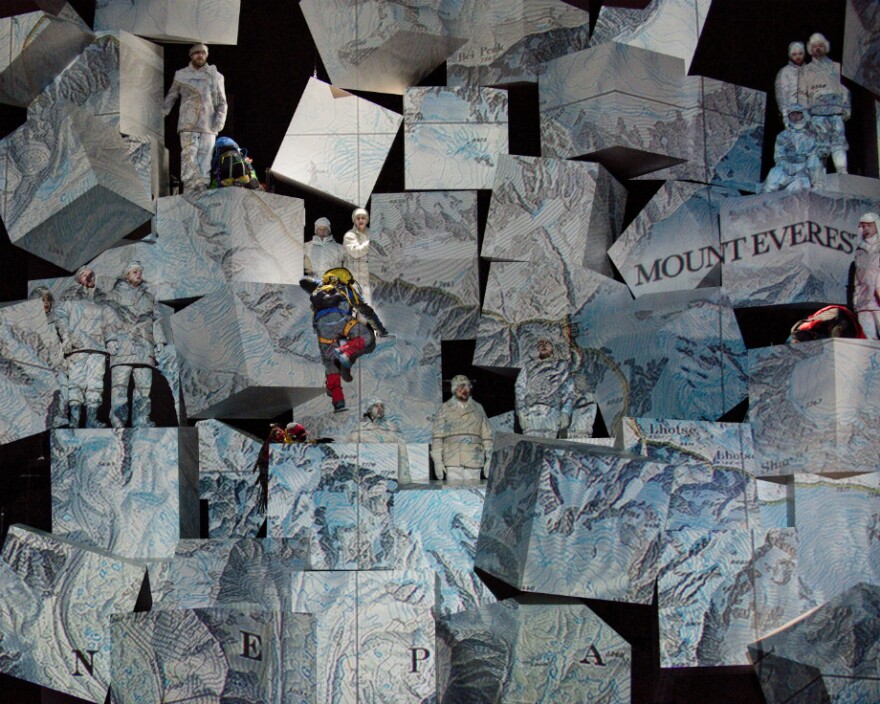Celebrated British composer Joby Talbot has written for film, television and ballet. Now, at 43, he’s composed his first opera that gets its world premiere by the Dallas Opera Friday night. Everest tells a tale pulled together from survivor stories, including that of North Texan Dr. Beck Weathers.
This opera was Gene Scheer’s idea. For years, the librettist who successfully worked on the Dallas Moby Dick premiere five years ago, had been captivated by the 1996 Everest expedition when eight climbers died.
“It seems to be about both really big sorts of existential themes coupled with these challenging circumstances these characters found themselves in,” Scheer says. “You’re dealing with both the big and the small.”

The Dallas Opera asked Scheer to meet composer Joby Talbot, and sold him on Everest -- especially, says the composer, on creating a sound world around the peak.
“There’s like the voice of the mountain that’s one of the first thoughts I had. Gene was talking about including a chorus,” Talbot said. “I thought 'well it’s not just the chorus representing the voice of the mountain, it’s going to be the music doing that too.' I was looking for the sound to represent this fickle, terrifying entity. So I was looking for rock cracking under the pressure, and the cold wind perpetually whistling past.”

Baritone Craig Verm was immediately thrilled by what he heard.
“Joby has brilliantly incorporated lots of breaths. So we can move with our body and gasp for air in between words and between phrases, to give the illusion that we really are suffering from hypoxia,” Verm says.
His character, Doug Hansen, is one of the doomed climbers. Aided by a guide, he sings of his desire to reach the summit.
“I say over and over ‘let’s do it, let’s do it, let’s do it,’ where each word has its own note and they’re very short and punctuated,” Verm says.
Scheer and Talbot focused on just a few personal stories, including that of Dr. Beck Weathers. He was near the summit when his eyesight failed. Weathers remembers guide Rob Hall’s parting advice.
“And I want you to promise me that you’re going to stay here till I come back,” Weathers recalled recently. “I said 'cross my heart, hope to die, I’m sticking.' It never occurred to me he would never come back.”
That’s when a blizzard blew in.
Two groups of climbers left an unconscious Weathers for dead - an accepted Everest practice. But he awoke from a coma 15 hours later and stumbled into camp, frostbite on his hands and face.

One question this opera poses: Why risk death at 29,000 feet?
For Weathers, climbing released him from suicidal depression. Verm, also a climber who trekked the same Colorado mountains Weathers first climbed, the answer’s a little different.
“I think what draws me to performing is the same things that draw me to the mountains. There is an aliveness, a mixture of being 100 percent physical, 100 percent emotional, 100 percent spiritual experience. And you’re exhausted, but you’ve never been more alive,” Verm says.
That’s what composer Talbot, librettist Scheer, and the Dallas Opera hope the audience feels with Everest.




